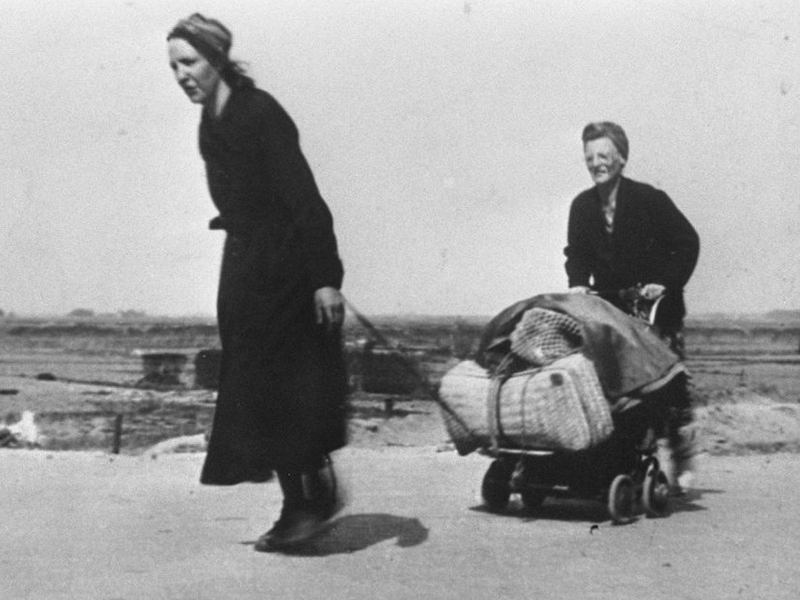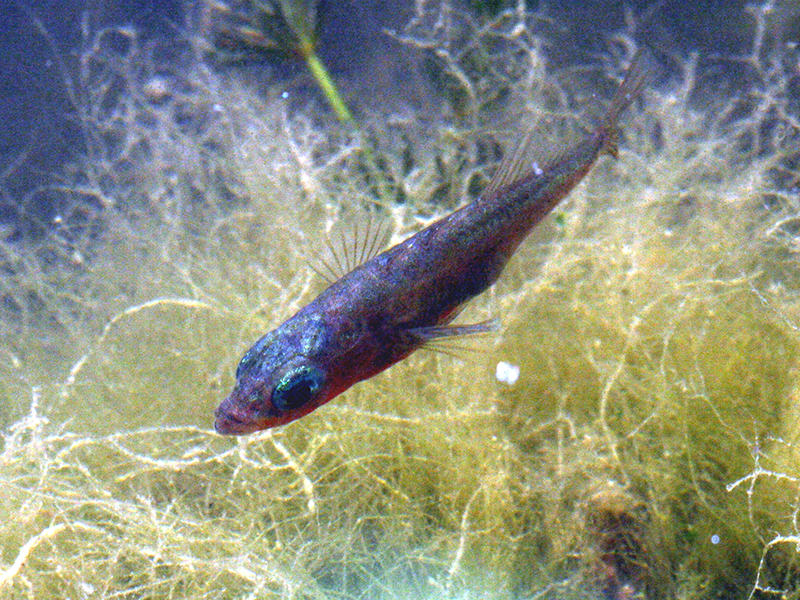Medicine
Trauma could be inherited in the long term
External influences such as diet or stress affect our bodies more strongly than previously thought: researchers at the University of Bern demonstrate that over long periods of time even genes could be altered as a result.

During the last winter of World War II, there was a famine in the Netherlands. Children born during this time were often underweight and, as studies revealed, were much more likely to suffer from diabetes, obesity and cardiovascular disease later in life.
Their offspring were also often smaller than other babies at birth – even though their mothers did not suffer from malnutrition during pregnancy. The famine they experienced thus had intergenerational effects. The same is true of other traumas: rape, accidents, or wartime deployments. They can all leave lasting traces on later generations as well.
In addition to genetics
This is where epigenetics comes into play. The term epigenetics originally comes from the Greek and literally means "in addition to genetics. Epigenetics is considered the link between environmental influences and genes. Environmental conditions such as nutrition or stress cause certain molecules to attach to or detach from genes. These so-called epigenetic markers help determine which genes are active and which are not.
But what role does epigenetics play in long-term changes, i.e. in evolution?
First epigenetic, then genetic changes
This is the question that Irene Adrian-Kalchhauser, Director of the Institute of Fish and Wildlife Medicine (FIWI) at the University of Bern, is working on. To this end, she and her team conduct experiments on fish. "Fish, on the one hand, are vertebrates and thus relatively similar to humans. This means that study results based on them are also correspondingly relevant for humans. On the other hand, fish lay eggs and often take little care of their young. Therefore, additional influences of the parents – such as placenta, milk and brood care – are omitted, which makes the study results more meaningful," Adrian-Kalchhauser explains.

To understand whether epigenetic information can also be passed on in the long term, the research team conducted a study to investigate the connection between genetic diversity and a specific epigenetic marker – known as DNA methylation – in free-living fish populations. "In the process, we found that in the sticklebacks we observed, there are epigenetic adaptations to environmental influences first, followed by genetic adaptations at the same location in the DNA," Adrian-Kalchhauser said.

Environmentally induced changes that occur during the lifetime of an organism can therefore be passed on to the next generations – not only epigenetically, but also genetically. This means that epigenetic changes can subsequently also alter the genes themselves and thus bring about permanent adaptations.
The online magazine of the University of Bern

Subscribe to the uniAKTUELL newsletter
The University of Bern conducts cutting-edge research on topics that concern us as a society and shape our future. In uniAKTUELL we show selected examples and introduce you to the people behind them – gripping, multimedia and free of charge.
A window into the genetic future
The study results, published in the journal Molecular Biology and Evolution, also suggest that by examining the sites in the genome where environmentally sensitive DNA methylation markers are found, it would be possible to predict where DNA will change in the long term – assuming environmental conditions remain the same.

According to the researchers, this finding could, among other things, help predict future genetic changes in species that are affected by the impacts of climate change, for example. "These epigenetic changes are therefore like little windows into the future of genetic evolution of the observed population," says James Ord, a researcher at FIWI and lead author of the study.
The results of the study by Adrian-Kalchhauser and her team are based on fish, to be sure. But their findings are also relevant for humans: "What applies to sticklebacks ultimately also applies to us: we react to environmental signals with certain epigenetic changes and pass on these changes," Adrian-Kalchhauser explains.
Experienced traumas could therefore not only affect the next generation or the one after that, but could become permanent components of the DNA.
Publication details
High nucleotide diversity accompanies differential DNA methylation in naturally diverging populations, James Ord, Toni I. Gossmann & Irene Adrian-Kalchhauser, Molecular Biology and Evolution, 2023
About the Institute for Fish and Wildlife Health (FIWI)
The FIWI works on infectious and non-infectious diseases of fish and wildlife at the interface of veterinary medicine, epidemiology, ecology and evolutionary biology. It consistently pursues a One Health approach and connect knowledge from different disciplines and social groups. It also focuses on diagnostics and the improvement and further development of methods for rapid pathogen detection. The aim is to educate the next generation of wildlife experts in Switzerland and beyond.